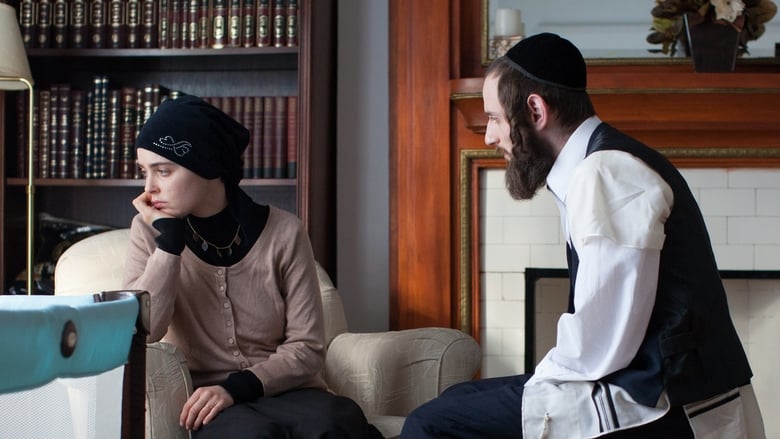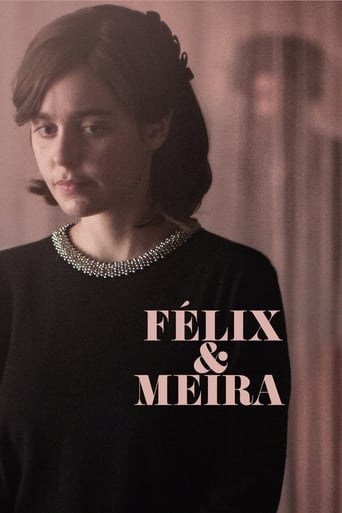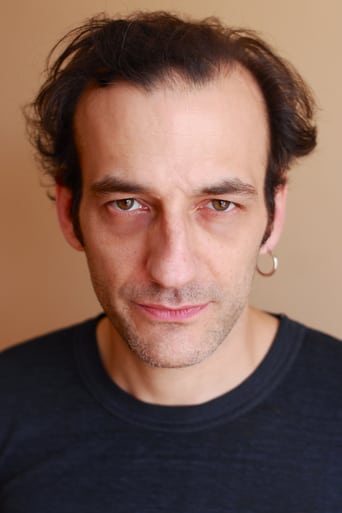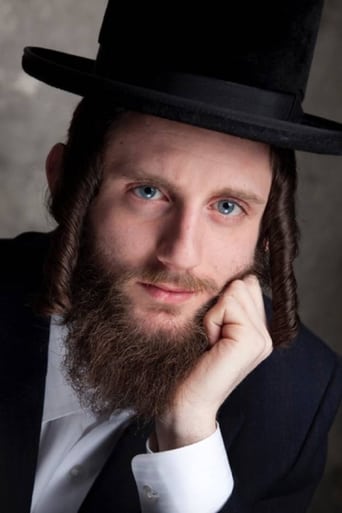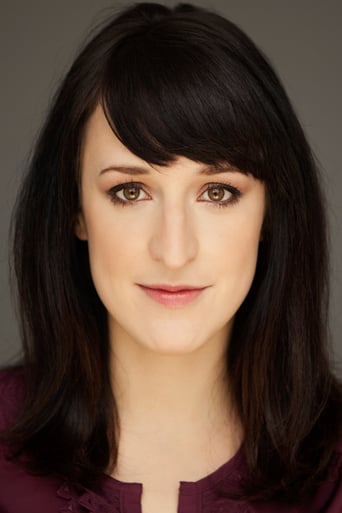A young married woman from Montreal's Orthodox Jewish community finds freedom from the strictures of her faith through her relationship with a young man who is mourning the death of his estranged father.
Reviews
Sorry, this movie sucks
Sadly Over-hyped
Just what I expected
A lot of perfectly good film show their cards early, establish a unique premise and let the audience explore a topic at a leisurely pace, without much in terms of surprise. this film is not one of those films.
It is always good to be able to define yourself. Even if traditions contradict your mind. In this film I saw the case when traditions are evil that rules over weak people. ....and love is not a tradition, it is a decision, not possible without knowing yourself. I like enormously the film, three main actors played excellent. What impressed me a lot were two sequences: the first one - the conversation between а "tradition man" Luzer Twersky and а "non tradition man" Martin Dubreuil; and the second one - when a "tradition man" broke his tradition listening to the song "After Laughter "after his wife left him.
In the opening scene of "Félix & Meira," it is clear that the character Meira is just waiting for her moment of liberation from her repressed life in a Hasidic Jewish community in Quebec. One of the most famous plays of the 19th century is Ibsen's "A Doll's House," in which the character Nora Helmer similarly braces herself for the opportune moment to walk out on her stultifying home life.But a major difference between Ibsen's writing and that of this film is in the ability for the audience to see the development of the protagonist, the evolution of her courage, and her moment-to-moment thought process in her life-changing decision. A shortcoming of "Félix & Meira" is the static nature of the film, even when the character makes the courageous decision to walk out on her husband and her community.Similarly, the enigmatic Félix is also underdeveloped as a character. There is a startling moment when the rabbi husband of Meira reads a letter left to Félix by his recently deceased father. The father offers a heartfelt apology for the way he treated his son and adversely impacted his life. Yet it is never made clear in the film whether the letter has had even the slightest impact on Félix.Much of the plotting of the film was clumsy with sudden changes from Quebec to Brookyn, where Félix adopts a truly bizarre disguise, and, later, to Venice, where Félix, Meira, and her child suddenly show up. Again, there was no arc of development of the characters. This is most apparent in a stunning moment when Félix touches Meira's hair, only to discover that it is wig. Yet Meira continues to wear the wig to the very end of the film.It was easy to see why Meira would want to sever ties with her husband. At one point, she confesses to a friend that she is reluctant to bear "6, 10, or 14" children, as required by custom. The friend immediately reports the conversation to the husband, betraying Meira and making her life even more claustrophobic. In one of her early meetings with Félix, Meira confesses that "I'd like to know what it's like to be single." It is unfortunate that she never comes close to experiencing her wish.
"Felix and Meira" (2014 release from Canada; 195 min.) brings the story of the two title characters. As the movie opens, we see Meira serving dinner to a group of Hasadic Jewish couples. Not a word is said during dinner, and you can immediately sense a sadness within Meira. It's only later that we understand she is bored and frustrated and suffocating under the tight-knit rules of the Hasadic Jewish community. Then we get to know Felix, a secular Jew whose father is dying. The two were not close but it still affects Felix significantly. One day, Felix runs into Meira and her 3 yr. old baby girl at the local coffee shop. He tries to strike up a conversation but she rejects him. Later on, though, it becomes clear that something is brewing between Felix and Meira. At this point we're at most 15-20 min. into the movie but to tell you more would spoil your viewing experience. You'll just have to see for yourself how it all plays out.Couple of comments: this is the third full-length feature from Canadian writer-director Maxime Giroux. This time he tackles a story line that plays out on the closed community that is the Hasadic Jewish Community. The 2012 "Fill The Voice" film explored similar themes as to the isolated Hasadic Jewish community, but here Giroux decides to make it even more personal by focusing on Meira and her conflicted feelings as to her overall life. In the beginning of the movie, Meira 'plays dead' to tease her husband. Much later on, when her husband asks why she doesn't do that anymore, Meira wistfully replies "Who says I'm not dead already?", wow. (And her husband's response to that? "When will you finally understand that this is our life? Pull yourself together!") It should be noted that, even though the closeness/isolationism of the Hasadic Jewish community can be an easy target for criticism, the movie treats them at all times with a great amount of respect. The acting performances are top-notch all the way, in fact I was wondering whether the Hasadic Jews were portrayed by actors or by real Hasadic Jews. Hadas Yaron as Meira is outstanding (she also played the role of a Hasadic Jewish wife in "Fill the Void" by the way.) Compared to that, Martin Dubreuil as Felix has a harder time staying in the lime light. Last but not least, there is an outstanding clarinet-heavy musical score (composed to Olivier Alary), and even fellow Canadian Leonard Cohen contributes a tune ("Famous Blue Raincoat"). Bottom line: this is a slow-moving (in the best possible way) family drama set within the Hasadic Jewish community that caught my attention from start to finish."Felix and Meira" opened without any pre-release fanfare or advertising at my local art-house theater here in Cincinnati this Memorial Day weekend. The matinée screening where I saw this at was very nicely attended, somewhat to my surprise to be honest (the audience was heavy on the seniors, I might add). If you are in the mood for a top-notch quality foreign movie that is GALAXIES away from the latest Mad Max or Pitch Perfect, do yourself a favor and check this out, be it in the theater, or eventually on VDV/Blu-ray. "Felix and Meira" is HIGHLY RECOMMENDED!
Greetings again from the darkness. This movie is filled with quiet and stillness. Maybe moreso than any movie I can recall. With a backdrop of Montreal, New York and Venice, and a theme of forbidden love and self-discovery, the quiet of the actors belie the undercurrent of emotion driving the three leads.Meira (Hadas Yaron) is a Hasidic Jew living with her husband Shulem (Luzer Twersky) and their toddler daughter within an Orthodox community where women are forbidden from listening to "outside" music, creating art, or even looking men directly in the eye. Their mission in life is to serve their husband, have lots of babies, and respect the religion. While many women in the community seem fine with their lot, Meira hides records under the sofa, draws pictures in a pocket-sized notebook, and longs for the excitement and color of the real world.One day, by happenstance, the paths of Meira and Felix (Martin Dubreuil) cross in a neighborhood corner store. He compliments her on her drawing, as she tries to ignore him. By the time they next meet, we have witnessed the painful bedside farewell of Felix to his dying father. It's difficult to tell which is the stronger emotion here – guilt or grief.Soon enough Felix and Meira are finding ways to meet, but there is no crazed display of passion between the two. There is a devastating scene as Felix patiently waits while Meira musters the courage to actually look into his eyes. It's like 50 Shades of Restraint. It turns out, for different reasons, these two lost souls share a common bond of loneliness. Meira's individuality and creativity are stifled by religious oppression, while Felix is coming to grips as the black sheep of a family that no longer exists. When Felix says of his father, "He hated me to death. And then he died.", we understand it's the missed opportunity that weighs on him more than the passing of a long-lost parent.Music plays a vital role in how director Maxine Giroux presents the characters and the story. Wendy Rene's "After Laughter Comes the Tears" is used beautifully, as is Leonard Cohen's "Famous Blue Raincoat". Heck, even a mousetrap becomes music to the desperate ears of Meira. As stated before, the film is incredibly quiet, and I challenge any movie lover to come up with a more painful argument than the one featuring Meira and Shulem whispering at each other from separate beds, or a more powerful scene with fewer spoken words than Shulem and Felix at the kitchen table. On the bright side, watching her walk around in her first ever pair of jeans is a freeing sight to behold.Mr. Giroux presents something very real, yet outside the bounds of what cinema usually brings when forbidden love, religion, loneliness and grief are involved. Ms. Yaron delivers an astounding performance, and it's little wonder this has been such a hit on the festival circuit.
Top Streaming Movies











